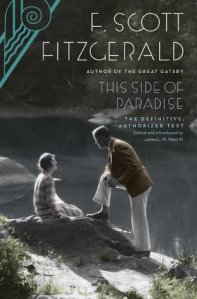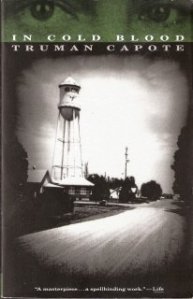From bestselling author Jon Krakauer, a stark, powerful, meticulously reported narrative about a series of sexual assaults at the University of Montana — stories that illuminate the human drama behind the national plague of campus rape.
Review:
Sometimes words don’t matter. People can make a “no” become a “maybe” or an “okay, I guess so” or, in the case of certain prosecutors, police officers, university officials, and powerful college boys in Missoula, Montana, a “no” can become “yes.” So instead of words, I’ll use numbers. Here are just a few from Jon Krakauer’s latest impeccable nonfiction, an investigation of rape in the United States:
-80% of rapes are never reported to the police
-only 0.4% to 5% of forcible rapes (that is, not of the more insidious and less understood “acquaintance rape variety) are prosecuted
-a mere 0.2% to 2.8% of these forcible rapes result in convictions with prison time
-most rapes are committed by serial offenders—the statistical chance is 90%
Which, as Krakauer summarizes, means that more than 90% of the time in the United States, a rapist suffers absolutely no punishment. The system rarely prosecutes rape cases, when they do, they rarely put them away, and so it becomes a scourge, a cycle of rapists continuing to rape because no one tells them that they can’t. This blurriness when it comes to punishing rapists leads to even blurrier lines during sexual encounters, especially in alcohol-soaked and hormonally-driven college campuses—what, exactly, is rape?
Krakauer interviews several victims of rape in Missoula and recounts their horrific stories, expunging no appalling detail. Rape can occur while sleeping, while passed out, while completely sober and saying “no,” while not saying “no” but never ever having said “yes.” When Krakauer lays out the stories, there is no blinking when it comes to whether or not it’s rape. And yet, between 2008 and 2012, various officials from the University of Montana, the Missoula Police Department, and the Missoula Prosecution Office blinked quite a lot when it came to convicting rapists. So much that one cheeky journalist labeled the normally bucolic small town the “Rape Capital of America.” Krakauer dismisses that title immediately in the least reassuring way possible: every story he’s about to share from Missoula could happen anywhere; its sexual assault statistics are comparable to the rest of the country. The United States has a deep problem in bringing rapists to justice, and Krakauer attempts to diagnose why.
The stories presented in Missoula are unbelievable unless read in full. For example, you have a police chief who argues that a girl with a blood alcohol content of .219 percent, so drunk she suffered multiple blackouts and checked into the hospital Emergency Room, was not physically incapacitated to the extent that she was unable to consent to sex. There are the various police officers who ask young girls coming to the station to report rapes, “Do you have a boyfriend? Because sometimes girls cheat on their boyfriends and then feel bad about it and decide to say they were raped.” Then there’s the constant blah blah blah about the male rapist’s “upstanding moral character” and how he’s just always been a “really good kid” and how one life has already been ruined from this mess (the victim’s), why ruin a second life too (that is, the rapist’s, the person responsible for ruining a life)? Krakauer absolutely destroys the lead Missoulan prosecutor supposedly responsible for sexual assault cases. This prosecutor, intended to be an advocate for the rape victims, is on record saying “Some people would argue that if I go home with someone and we say, ‘Well, we’re going to go have sex,’ and then I fall asleep and wake up and he’s having sex with me—some people would say that’s consensual, and some people would say it’s not.”
Story after story, quotation after quotation, Missoula is a goldmine for every eye-rolling, head-shaking, fist-curling thing you’ve heard about rape. The only unsatisfying thing about the book is the grand finale. After hundreds of pages of appalling evidence that rape is one of the capital crimes facing current American society, Krakauer seeks to point his journalist finger at a culprit. Here, unfortunately, he does not swing the axe all the way. In the case of Missoula, he blames the university, the police department, and the prosecuting office, which is all true, but he neglects to climb the ladder one more step to arrive at the obvious and ultimate problem: the still unequal status of women.
Women are told to always be nice, so they do not want to ruin a boy’s life by saying he’s a rapist. Women avoid confrontation, so even in the middle of nonconsensual sexual interactions, they might not scream or run or fight back—it just wouldn’t be polite. When someone goes to the police for a robbery, the police do not say, “Okay, but you left your door unlocked and that beautiful new TV was just asking to be stolen.” They go out and gather evidence to press robbery charges. But with rape, the police ask the traumatized girl, “Were you drunk? Did you maybe make the man think you wanted to have sex with him? Did you say no? Did you make sure he heard you say no?” Rape victims are oddly not always considered victims, but perpetrators of a lie, of a ruse, of a scandal. It originates from a society that values boys more than girls. And although Krakauer’s exposé of Missoula ends somewhat positively, with the town’s justice system reflective and chastened and prepared to be better, rape as a phenomenon, unfortunately, cannot be combated until the sum of a girl equals the sum of a boy.









